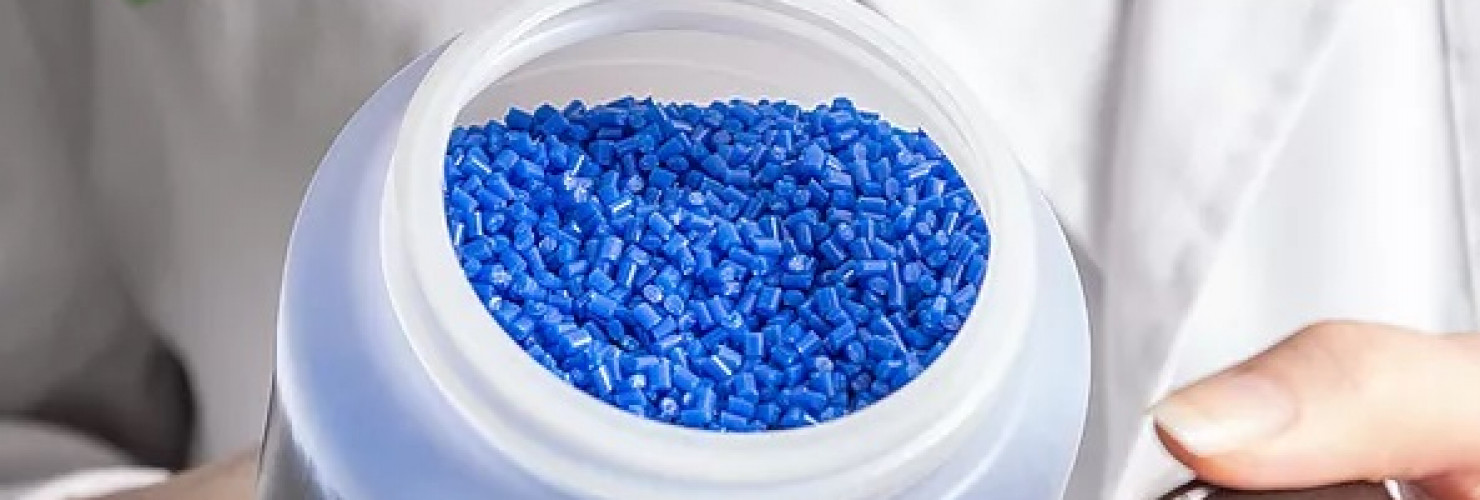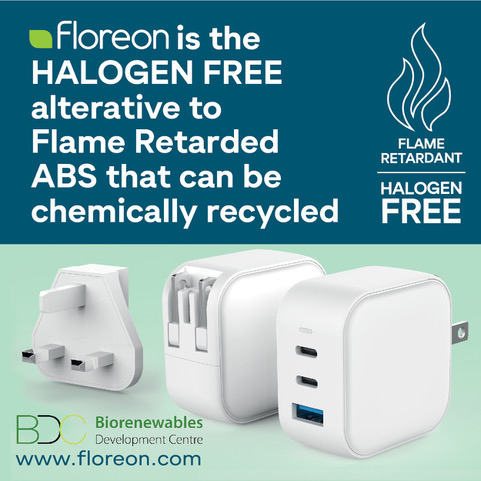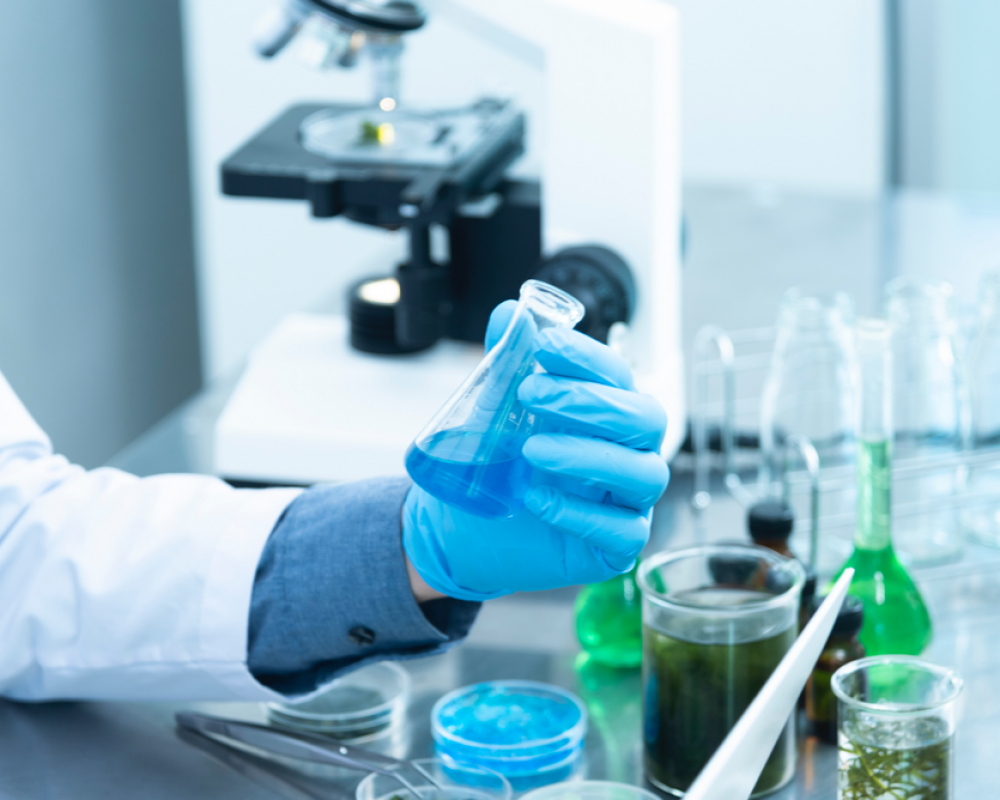
High performance bioplastic that can help combat climate change
Floreon is a developer of high-performance bioplastics. Floreon’s multi-award winning and globally patented bioplastic polymers are derived from plants such as corn and sugar beet. They have created a specially formulated compound based on polylactic acid (PLA) that performs in the same way as oil-based plastics. The material is compostable, recyclable and has a carbon footprint seven times lower than traditional plastics.

From 1st March 2021, the EU prohibited halogenated flame retardants (HFR) in plastic enclosures and stands of electronic displays1. The aim of this new directive is to force the designers of electrical appliances to become more circular. Safety of the customers was also a deciding factor for the new legislation.
Since the EU ban of HFR, Floreon have developed a halogen-free alternative to flame retardant ABS (Acrylonitrile Butadiene Styrene) that is suitable for both chemical and mechanical recycling.
Andrew Gill, Technical Director, Floreon explained: We responded to the plastic industry demand for halogen free FR systems that could replace the flame retardant ABS and offer possibility of recycling from post-consumer sources. FR ABS is often not recycled today due to concerns about halogenated flame retardants. For electronics and electrical industry this translate to a vast volume of waste plastic that cannot be recycled.
To find a solution to this problem, the Biorenewables Development Centre worked with Floreon to perform pilot-scale testing of the chemical recycling of their base PLA (polylactic acid) material. Analysis of the reaction mixture indicated that the team successfully recovered the bulk of the lactic acid in a simple and fast reaction, removing all flame retardant and fillers by simple filtration. This feedstock can then be used to regenerate polymers with no downcycling. These research trials were supported by the BDC’s pre-funded project work with Bioeconomy Growth Programme.
Darren Phillips, Senior Technologist at the BDC commented: We have conducted several lab trials using our state-of-art processing and analytical facilities at the BDC. Working with Floreon, we have developed a method whereby we can separate lactic acid from their PLA composite, providing a cost-effective route for recycling PLA without decreasing its market value.
Andrew commented: The partnership with the BDC has allowed us to demonstrate a simple and cost effective way of recycling a complex product, preserving the value of the feedstock for as long as possible in line with the principles of the circular economy, a key part of our design criteria in developing the product.
The Floreon R&D team have also examined the notched impact strength of their materials alongside a high-performance ABS and flame retardant ABS. Impact testing is a common parameter that measures notch sensitivity in plastics. The higher the resulting numbers the tougher the material. The analysis showed that Floreon materials were able to match the notched impact strength of ABS (20 kJ/m2).
The company’s HQ is based at the Aura Innovation Centre – an innovation facility in the Humber, led by the University of Hull, where the testing facilities are available to Floreon’s team, allowing bespoke development of materials that can reach the market quickly.
Notes to editors:
This project has received funding from the England European Regional Development Fund as part of the European Structural and Investment Funds Growth Programme 2014-2020
The York, North Yorkshire and East Riding (YNYER) LEP awarded a grant of £1M to the BDC as part of the Local Growth Fund (LGF) support which funded the equipment used to carry out this project. For more information visit: https://www.businessinspiredgrowth.com/funding/local-growth-fund/
Reference:
- Commission Regulation (EU) 2019/2021 of 1 October 2019 laying down ecodesign requirements for electronic displays pursuant to Directive 2009/125/EC of the European Parliament and of the Council, amending Commission Regulation (EC) No 1275/2008 and repealing Commission Regulation (EC) No 642/2009, https://eur-lex.europa.eu/legal-content/EN/TXT/?qid=1576033291584&uri=CELEX:32019R2021
